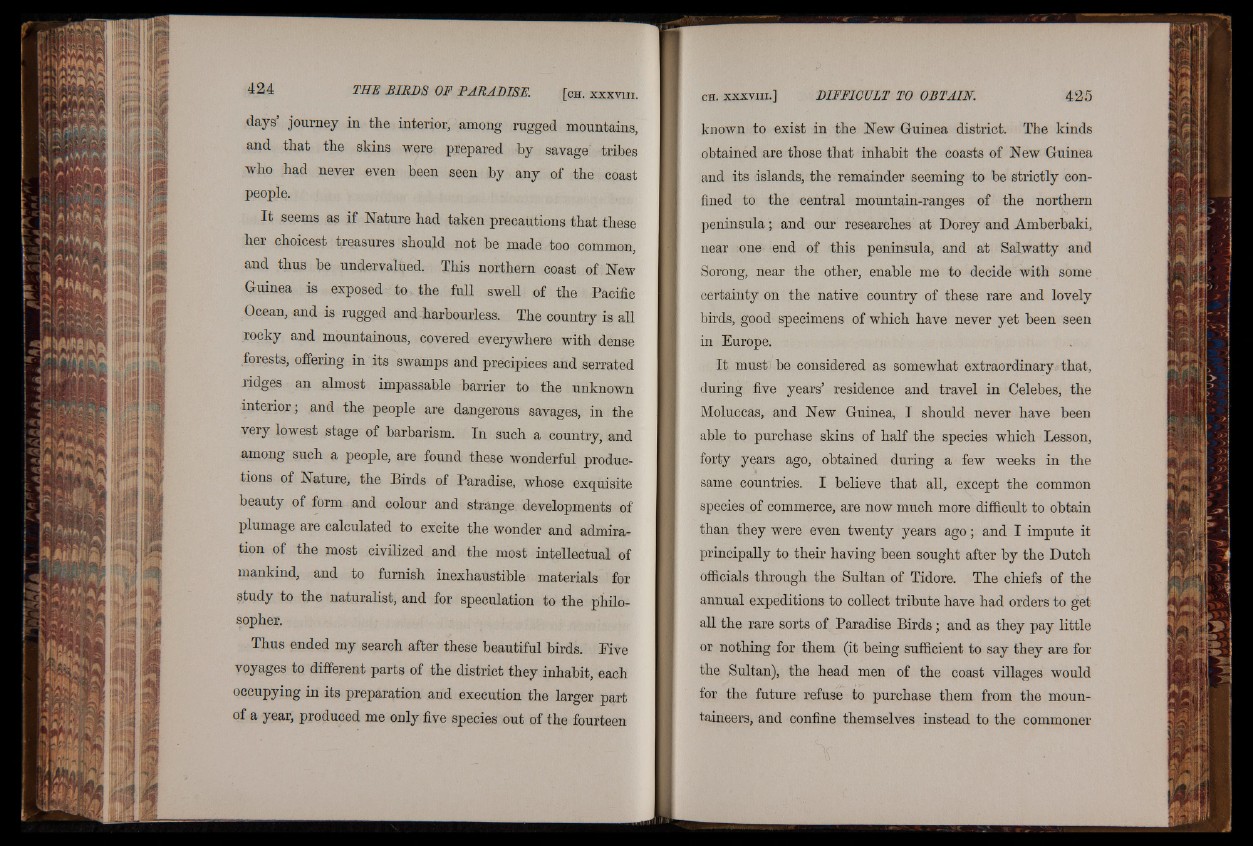
days journey in the interior, among rugged mountains,
and that the skins were prepared by savage tribes
who had never even been seen by any of the coast
people.
It seems as if Nature had taken precautions that these
her choicest treasures should not be made too common,
and thus be undervalued. This northern coast of New
Guinea is exposed to . the full swell of the Pacific
Ocean, and is rugged and harbourless. The country is all
rocky and mountainous, covered everywhere with dense
forests, offering in its swamps and precipices and serrated
ridges an almost impassable barrier to the unknown
interior; and the people are dangerous savages, in the
very lowest stage of barbarism. In such a country, and
among such a people, are found these wonderful productions
of Nature, the Birds of Paradise, whose exquisite
beauty of form and colour and strange developments of
plumage are calculated to excite the wonder and admiration
of the most civilized and the most intellectual of
mankind, and to furnish inexhaustible materials for
study to the naturalist, and for speculation to the philosopher.
Thus ended my search after these beautiful birds. Five
voyages to different parts of the district they inhabit, each
occupying in its preparation and execution the larger part
of a year, produced me only five species out of the fourteen
known to exist in the New Guinea district. The kinds
obtained are those that inhabit the coasts of New Guinea
and its islands, the remainder seeming to be strictly confined
to the central mountain-ranges of the northern
peninsula; and our researches at Dorey and Amberbaki,
near one end of this peninsula, and at Salwatty and
Sorong, near the other, enable me to decide with some
certainty on the native country of these rare and lovely
birds, good specimens of which have never yet been seen
in Europe.
It must be considered as somewhat extraordinary that,
during five years’ residence and travel in Celebes, the
Moluccas, and New Guinea, I should never have been
able to purchase skins of half the species which Lesson,
forty years ago, obtained during a few weeks in the
same countries. I believe that all, except the common
species of commerce, are now much more difficult to obtain
than they were even twenty years ago; and I impute it
principally to their having been sought after by the Dutch
officials through the Sultan of Tidore. The chiefs of the
annual expeditions to collect tribute have had orders to get
all the rare sorts of Paradise Birds; and as they pay little
or nothing for them (it being sufficient to say they are for
the Sultan), the head men of the coast villages would
for the future refuse to purchase them from the mountaineers,
and confine themselves instead to the commoner